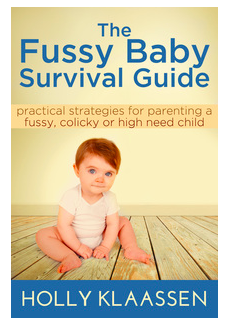- You are here:
- Home »
- Blog »
- Spirited Kids »
- What’s The Best Parenting Style For High Need Kids?
What’s The Best Parenting Style For High Need Kids?
Do you ever find yourself wondering if there’s one “right” approach or style when it comes to parenting a high need child?
Certain books tell us that these kids need a strict, firm approach. We should set up schedules and routines, then be very consistent. We should set strong boundaries, then enforce those boundaries at all costs. Eventually, our kids will “get it”.
Example of this approach: Set a 7pm bedtime and stick to it, no matter what. Eventually your baby will adapt and adjust to this routine.
Other popular advice tell us that we need to be extremely responsive to our child’s needs and desires, sometimes to the point of neglecting our own needs. Sometimes this is misunderstood as bending our will to our child’s, most of the time.
Example of this approach: For fear of damaging your bond with your child, you don’t shower unless someone is home to watch him. You’re scared that he’ll cry the whole time (and in reality, he probably will), but you’re scared he’ll think you’ve abandoned him.
When you see and compare these two approaches, I think most parents would agree that neither is ideal.
And this is the challenge of parenting a high need or spirited child. Do we follow a certain parenting style, make up our own, or use a combination of several?
Practically speaking, we may face the following dilemnas:
We want to be responsive – but not be a door mat.
We want to have a routine – but not a strict schedule.
We want our baby to learn to sleep – but don’t want to do cry it out.
We want to be flexible – but also want to set clear boundaries.
We want our home to be peaceful – but don’t want to always give in to our child.
No one ever said it was easy being a parent to a spirited child!!
Of course, no one can tell you what the right parenting style is for you and your child. However, whatever approach you take, I think it’s important to ask yourself the following questions:
1. Does this style respect my child’s temperament?
High need babies and “spirited” kids (their older counterparts) are different, to be sure. They’re not entirely unlike other kids, however they tend to need a bit of a different approach to parenting.
Example: I have two kids with two very different temperaments. The approach that works for my daughter does NOT work for my son. With my daughter, I can set a boundary or ask her to something, and she’ll do it. She may not like it, but she’ll grumble and complain then eventually do it.
My son doesn’t operate like this. The depth of his emotions is so great that he can easily become wrapped up in their intensity. If he feels (not just believes – FEELS) that something is unfair, unjust or doesn’t make sense, he can’t just grumble and then move on from it.
Because our kids need two different approaches, we have generally adopted the one that works best for our son. Which – it turns out – is probably an approach that is better for giving them the skills they’ll need to deal with conflict and disagreements as they get older (negotiation, compromise, etc.)
2. Does this “stretch” my child without “breaking” her?
As already mentioned, high need or spirited kids aren’t altogether unlike other kids. They may be “more” – more sensitive, more intense, more persistent, etc. – but they’re still just kids!
For this reason, it’s important to continue to try new strategies and not just assume our intense little baby or toddler is incapable of learning or changing.
That said, we also may need to adjust our own expectations.
For instance, our high need baby may be able to learn to sleep, however may also continue to need more reassurance than other babies at night.
Or, our picky eater may never eat everything on his plate, but can learn to adapt to flexible mealtime guidelines (Look up Division of Responsibility in Feeding for great info on dealing with mealtime battles with spirited kids).
In other words, we can expect certain things from our child, while also keeping in mind his or her temperament and current developmental capabilities.
3. Does this style jive with who I am and who I want to be?
Generally speaking, there are 3 main approaches to parenting:
Authoritarian parenting
Setting very high expectations, and not offering sufficient support to help the child succeed meet those expectations.
Example: “Since I’m the parent, you’ll do what I say, when I say.”
Authoritative parenting
Setting reasonable demands/boundaries, and helping the child succeed at meeting these demands.
Example: “I’m the parent, so I will choose rules and guidelines that are aimed at helping you succeed in life. However, I’ll also help you along the way, to the best of my ability.”
Permissive parenting
Providing few firm guidelines for expected behaviours. Parents usually do this with good motivation (i.e., are very loving), however aren’t equipping the child to successfully meet expectations they’ll encounter in the real world.
Example: “I’ll let you set your own boundaries.”
It’s not always easy to see which camp we fall into, and certainly, we won’t fall into any one camp 100% of the time. For instance, while I tend to mostly fall into the second category, I find myself yo-yoing between the other two, usually depending on how tired or impatient I am!
In short: Do you feel good about the style you’re following? Does it make sense to you, and feel right to you?
If so, you’re probably on the right track!
4) Is what I’m doing sustainable?
Finally, it’s important to ask yourself if your current style and approach is sustainable.
For instance, while you may be very happy to rock your child to sleep right now, can you continue an elaborate soothing routine once baby #2 comes along? If not, it may be time to look into other alternative methods that “jive” with your values.
Here’s another example: You may find it easiest to let your picky four-year-old old eat what he wants at any time throughout the day. However, this approach may not be appropriate or even possible when he goes to someone else’s house or starts school. In this case, this approach wouldn’t be considered sustainable.
I love this illustration of the rubber band and pretzel when it comes to parenting “difficult” kids:
As early childhood professionals and parents, we have heard that we as the adults need to be the one to adjust once we have the understanding of temperament. Right? But, this has led many of us to twist and contort ourselves to the breaking point – hard & brittle like a pretzel.
We need to think about this with a more balanced approach – more like a rubber band. Allowing ourselves time to stretch and grow to meet the child’s needs. If we adjust too much too quickly, then the rubber band will snap. But if we move at a steady pace to meet the child’s unique “shape” we will find our rubber band encircling that child with the support he or she needs and more easily adaptable in different situations.
Keep in mind that different strategies or approaches may be sustainable (or not sustainable) depending on your circumstances and phase of life. This is why it’s important to be flexible and to evaluate your strategies from time to time.
Conclusion
In the 1950’s, groundbreaking research was done on temperament. Even though the research is old and much has been added to the research pool when it comes to kids and temperament, I still find this quote (from one of the lead researchers) right on point:
In general easy children respond favorably to various child-rearing styles…In the case of difficult children the handling problem is present from the onset.
The parents must cope with the child’s irregularity and the slowness with which he adapts in order to establish conformity to the family’s rules of living.
If the parents are inconsistent, impatient or punitive in their handling of the child, he is much more likely to react negatively than other children are.
Only by exceptionally objective, consistent treatment, taking full account of the child’s temperament can he be brought to get along easily with others and to learn appropriate behavior.
This may take a long time, but with skillful handling such children do learn the rules and function well. The essential requirement is that the parents recognize the need for unusually painstaking handling; tactics that work well with other children may fail for the difficult child.”
It’s no secret that high need or spirited kids can be a challenge! But practically speaking, how do we parent them? Sleep, meltdowns and discipline are all common challenges parents face. My practical guide walks you through the best strategies for parenting a fussy child, 0-5!
Check out The Fussy Baby Survival Guide now
Other Posts You May Like
Best Products for Fussy Babies
50+ Best Toys & Products for Spirited Kids, 0-5: Christmas Gift Guide
Stop Crying, Calm Down, and Other Things We Tell Our High Need Kids
What’s The Best Parenting Style For High Need Kids?
What to Do About Sibling Fighting
Dealing with Defiance in Your Spirited Toddler or Preschooler


